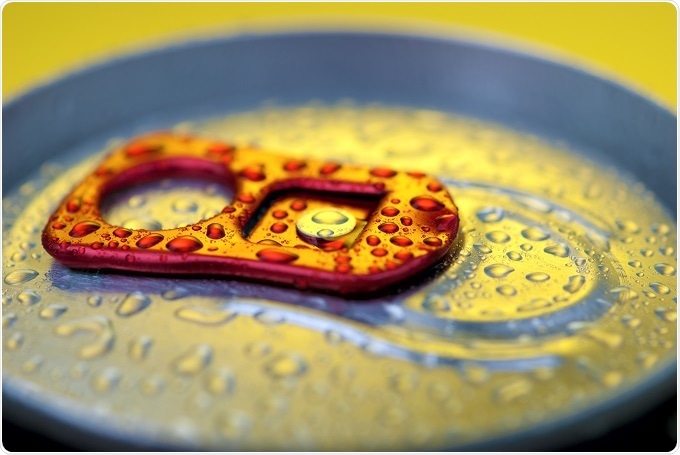Apr 28 2017
A new study in Journal of the American Heart Association, reveals that drinking 32 ounces of an energy drink with 320 milligrams (mg) of caffeine results in intense changes in the electrical activity of the heart and in blood pressure, compared with drinking 32 ounces of a control drink with the same amount of caffeine in it.
 Credit: Yeamake / Shutterstock.com
Credit: Yeamake / Shutterstock.com
The U.S. Food and Drug Administration state that 400 mg of caffeine in about four or five doses a day is safe for healthy adults. However commercially available energy drinks often contain proprietary energy blends along with caffeine. The researchers said that with the availability of more than 500 energy drink types in the market and with an increasing trend of energy drink-related emergencies and deaths, questions arise about the safety associated with such drinks.
We decided to study energy drinks' potential heart health impact because previous research has shown 75 percent of the base's military personnel have consumed an energy drink. And nearly 15 percent of military personnel, in general, drink three cans a day when deployed, which is more than we studied here,"
Emily A. Fletcher, Pharm.D., study author and deputy pharmacy flight commander from David Grant U.S.A.F. Medical Center at Travis Air Force Base in California.
From a sample of 18 young participants, two groups were formed randomly. The first group were given 32 ounces of commercially-available energy drink comprising of 108g sugar, 320 mg caffeine, and various other compounds. The second group received a control drink of 320 mg caffeine, 40 ml lime juice, and 140 ml cherry syrup in carbonated water. The drinks were swapped between the two groupsafter a 6-day run-in period.
Using an electrocardiogram the electrical activity of the heart was measured. Researchers also calculated the peripheral and central blood pressures at baseline and at one, two, four, six and 24 hours after the participants consumed the drink.
"Peripheral blood pressure is the measurement of the pressure in an outlying artery, typically an upper arm. Central blood pressure is the measurement of the pressure in the aorta near the heart," Emily Fletcher said. "Blood pressures at each location are not always affected equally when a substance is introduced, such as medications. Central blood pressure is an emerging and potentially superior method to assess health outcomes related to elevated blood pressure."
The study found that the first group, the energy drink caffeine group, had a corrected QT interval of 10-milliseconds higher at 2 hours in contrast to the second group, the control drink caffeine group.
"The QT interval is the measurement of the time it takes ventricles in the heart (the lower chambers) to repolarize, or prepare to generate a beat again. It's the pause from the end of the electrical impulse generating the heart to beat to the next impulse," Fletcher said. "If this time interval, which is measured in milliseconds, is either too short or too long, it can cause the heart to beat abnormally. The resulting arrhythmia can be life threatening."
To demonstrate the need for caution of this 10-millisecond difference, medicines are available that influence the corrected QT interval by 6 milliseconds and display warnings about the effects of the products on their labels.
The systolic pressure in the second group (control drink group) came back to the original readings after 6 hours whereas those who consumed the energy drinks continued to have slightly elevated blood pressure after this amount of time, even though both the groups had shown a similar increase in the systolic blood pressure.
Fletcher commented: "This suggests that ingredients other than caffeine may have some blood pressure altering effects, but this needs further evaluation."
Based on ththe evidence in healthy young adults, Fletcher cautioned individuals with high blood pressure, cardiac conditions, or other health issues to stay away from consuming energy drinks until more information is found about their impact on the health of the heart. She concluded that this is a small study and further research needed to confirm the validity of these results.